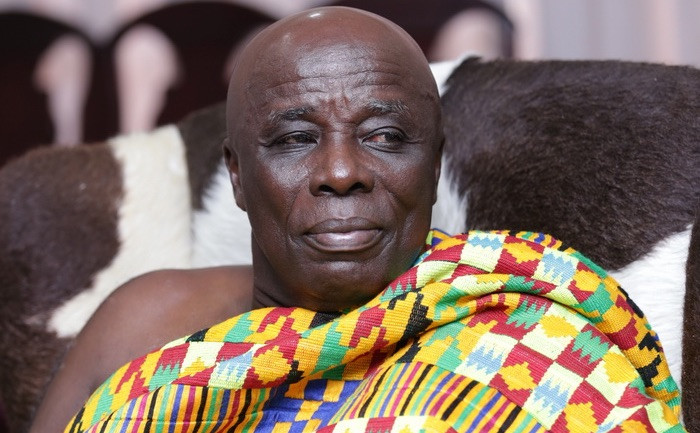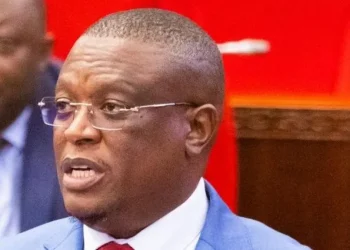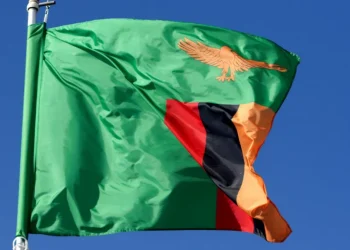The Okyenhene, Osagyefo Amoatia Ofori Panin is worried about the millions of African youth who are continuously lured into slavery in the Mid-Eastern and Gulf countries in search of greener pastures.
He said the most disheartening aspect of the phenomenon is the plight of young African women who are forced into sex trade and prostitution in these country.
Speaking at the Congregational Ceremony of the North Eastern University, Boston, USA, Osagyefo Amoatia Ofori Panin hinted that, even though the United Nations Universal Declaration of Human Rights prohibit human beings from being held in slavery or servitude, the worse form of slavery continues to target the very poor African youth.
He opined that, the universal declaration on human rights further states that, all human beings are born free and equal in dignity and with rights, however, the opposite is the reality in most part of the world with Africa at the receiving end.
Osagyefo attributed these human rights violations to the phenomenon of mass poverty in Africa occasioned by multifaceted indicators.
The Okyenhene mentioned that, over one billion people, two thirds of them women and children live in extreme poverty of less than one dollar a day.
“Over 60% of the adult population in Sub-Saharan Africa is engaged in subsistence agriculture with reliance on rainfall due to the absence of irrigation. In essence there is no all-year-round employment. Thus, mass rural poverty, drudgery and unemployment is endemic. However, these rural communities have been able to survive by the means of inherent human ingenuity to adaptation, knowledge of the nature and established customary institutions for the preservation and sustainable exploitation of natural resources,” Osagyefo said.
He added that in the past five decades, livelihoods have encountered the hazards of climate change which has compounded existing poverty.
“The adverse impacts of climate change will be most striking in the developing nations of Africa because of our geographical and climatic conditions, our high dependence on natural resources, our limited capacity to adapt to a changing climate, projected changes in the incidence, frequency, intensity and duration of climate extremities as well as more gradual changes in the average climate. These will notably threaten civilization, further increasing inequalities between the developing and developed worlds,” the Okyenhene stressed.
Climate change is therefore a serious threat to poverty eradication and its anticipated impact on developing countries paint a gloomy picture due to the economic importance of climate sensitive sectors like agriculture and fisheries which supports the livelihoods of majority of its people.
Osagyefo Amoatia Ofori Panin said, African countries lack the human, institutional and financial capacity to anticipate and respond to the direct and indirect effects of climate change.
Their vulnerability is highest as they bear the greatest burden of climate change in terms of loss of lives and relative effects on investments and failed poverty reduction policies on the economy.
According to him, the conventional policy models for tackling poverty fail to take into account the peculiar socio-economic and political conditions in Africa.
He said in most instances, the vast majority of those living on one dollar a day, mostly rural dwellers, are not captured by governmental statistics and state institutions, making poverty reduction through fiscal institutions ineffective.
“The core of the matter lies in the fact that policy measures for livelihood, food security and occupational agriculture are designed by bureaucrats in the capitals of Africa who are completely divorced from the conditions and circumstances of local communities. There is also the neglect of the participation of traditional leaders in these communities. Age-old customary observances that assured the integrity of the natural ecology, including accumulated knowledge of the flora and fauna of these living communities have been ignored in the development of policies,” Okyenhene added.
He therefore advised policy makers to take advantage of the knowledge, expertise and leadership of traditional leaders to ensure the fight against poverty is won.
Osagyefo called for deeper and effective cooperation between Okyeman and the North Eastern University, Boston to set the pace for cooperation between traditional leaders in Africa and the global academia.
The Okyenhene Osagyefo Amoatia Ofori Panin also signed a Memorandum of Understanding between the Akyem Abuakwa State and the Worcestor Polytechnic Institute in the United State of America to enhance research activities and publications related to mine-land reclamation, eco-tourism, education and open STEM.
The five year MOU will also enhance joint publication of research finding between institutions of higher learning in the Akyem Abuakwa State and Worcester Polytechnic, participation in seminars and academic meetings, scholarship and undergraduate opportunities including graduate and students activities and exchange of research personnel.
Source: myjoyonline
















